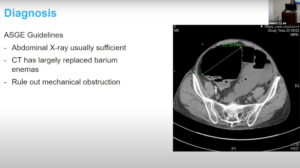NEW YORK (Reuters Health) – Even the best strategies for selectively testing colorectal CRC tumors for mismatch repair (MMR) gene mutations will miss 5% to 15% of Lynch syndrome cases, according to the results of a new data analysis.
“Universal tumor MMR testing among CRC probands had a greater sensitivity for the identification of Lynch syndrome compared with multiple alternative strategies, although the increase in the diagnostic yield was modest,” report Dr. Antoni Castells, with the University of Barcelona, Spain, and colleagues in the October 17th issue of the Journal of the American Medical Association.
The authors explain that Lynch syndrome, the most common form of hereditary colorectal cancer, is caused by germline mutations in DNA mismatch repair genes and accounts for up to 3% of CRC cases. When cases are identified, highly effective preventive measures can be implemented for family members as well as the proband, but the majority of cases go undetected.
“Tumor MMR testing is the cornerstone for identification of Lynch syndrome,” the team points out, but it remains unclear which colorectal cancer patients should undergo these tests.
The current study compared the performance of three selective strategies (Bethesda guidelines, Jerusalem recommendations, and those derived from analysis of variables associated with Lynch syndrome) with universal screening of all CRC tumors for identifying Lynch syndrome cases, using pooled data on 10,206 CRC patients in four different cohorts. A diagnosis of Lynch syndrome was made in 312 of those patients.
As expected, universal testing had a sensitivity of 100%; specificity was 93.0% and the diagnostic yield was 2.2%. The next best strategy, based on testing CRC patients aged 70 or younger or older patients meeting Bethesda guidelines, had a sensitivity of 95.1%, specificity of 95.5%, and diagnostic yield of 2.1%.
In fact, that selective strategy “resulted in a 34.8% fewer CRC patients requiring tumor MMR testing,” the authors point out.
Corresponding sensitivity, specificity and diagnostic-yield figures for the Bethesda guidelines were 87.8%, 97.5%, and 2.0%; for the Jerusalem recommendations they were 85.4%, 96.7%, and 1.9%.
Summing up, Dr. Castells told Reuters Health via email: “Unless a universal screening approach consisting of tumor MMR testing in all CRC patients is performed, a clinically meaningful proportion of MMR gene mutation carriers will remain undiagnosed.”
If resources are limited, however, he noted that a similar diagnostic yield to the universal strategy can be achieved using the selective strategy of testing tumors from CRC probands diagnosed at age of 70 or younger, and in older probands fulfilling at least one criterion of the revised Bethesda guidelines.
Is universal tumor MMR screening likely to be cost-effective? “We have not performed a cost-effectiveness analysis,” Dr. Castells responded.
“However,” he commented, “taking into account that it is accepted that the whole Lynch syndrome screening process is cost-effective when the benefits to immediate relatives of identified patients are considered and, accordingly, the more patients who are diagnosed, the more at-risk relatives can undergo genetic evaluation and receive appropriate cancer surveillance and other preventive interventions, the most sensitive strategy (i.e. universal tumor testing) should be the most cost-effective approach.”
In a related editorial, Dr. Uri Ladabaum and Dr. James M. Ford, of Stanford University, California point out, “The study results should remind clinicians that simply asking about a family history of CRC in a first-degree relative will miss the majority of patients with LS (Lynch syndrome): only 43% of patients with LS had such a family history.”
Concluding, the editorialists note: “In the not too distant future, advances in genomic sequencing will challenge current genetic testing approaches. Commercial panels of ‘cancer genes’ are already emerging. With the anticipated further reductions in the costs of DNA sequencing, up-front germline testing at the time of CRC diagnosis could become the most cost-effective strategy to screen for LS.”
SOURCE: Identification of Lynch Syndrome Among Patients With Colorectal Cancer




